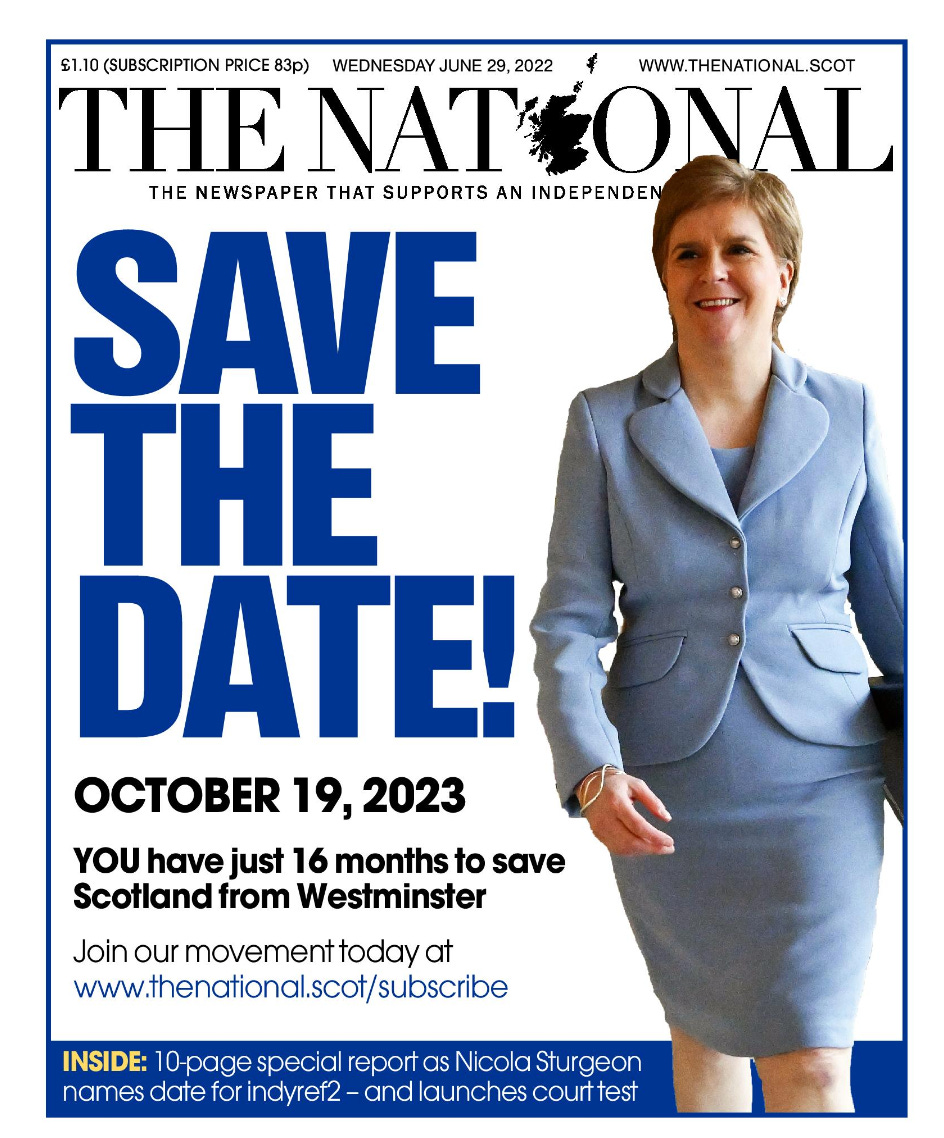The Debatable Land #23: Nicola Sturgeon concedes defeat (for now)
The first minister tells her supporters a truth they are not ready to hear
Welcome to the latest edition of my newsletter, The Debatable Land. There’ll be another edition arriving tomorrow but today’s is a single-issue affair. How could it be otherwise, since it concerns Nicola Sturgeon and her single-issue party? Thanks for reading and should you wish to receive more of these epistles you can subscribe here:
Reader, there is no need to save the date. For some time now, the talk in Scottish politics has centred on just how Nicola Sturgeon and the SNP can force a referendum on independence next year. Doing so would fulfil a manifesto promise made during last year’s Scottish parliament election but also, inconveniently, impose a referendum on a people currently stubbornly opposed to a plebiscite on the timetable favoured by the first minister.
Well, we have the answer now. There will be no referendum next year. This is not the message Sturgeon’s supporters wanted to hear and I fear she delivered it in too subtle a manner for many of them to appreciate just how…



